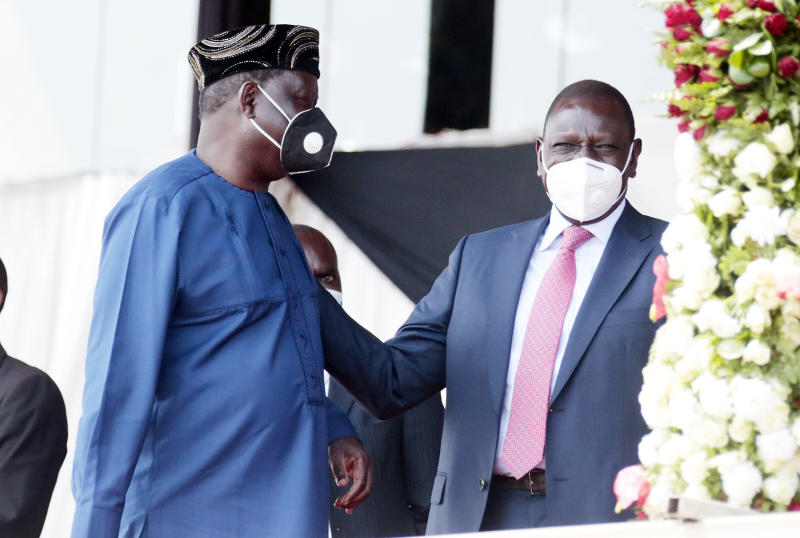Former Prime Minister Raila Odinga (left) and Deputy President William Ruto chat during the Jamhuri Day celebrations at Nyayo National Stadium in 2020. [Boniface Okendo, Standard]
×
The Standard e-Paper
Kenya's Bold Newspaper

Former Prime Minister Raila Odinga (left) and Deputy President William Ruto chat during the Jamhuri Day celebrations at Nyayo National Stadium in 2020. [Boniface Okendo, Standard]
The drama about running mates for the two leading presidential candidates, Deputy President William Ruto and ODM leader Raila Odinga seems to zero in on Mt Kenya as the deserving producer of the next Deputy President. The argument is that the Mountain has votes that any serious presidential candidate cannot underestimate.